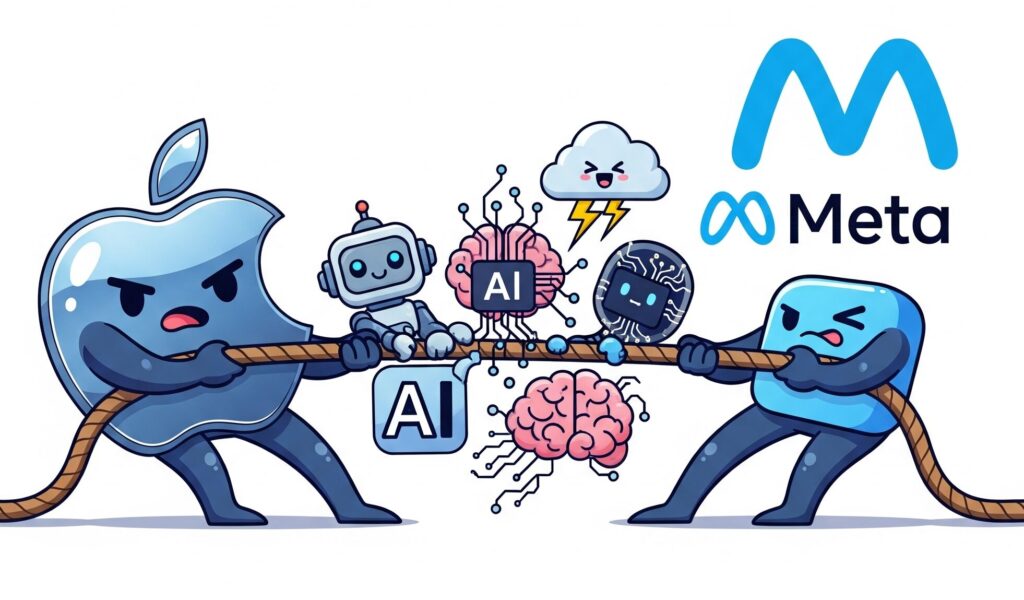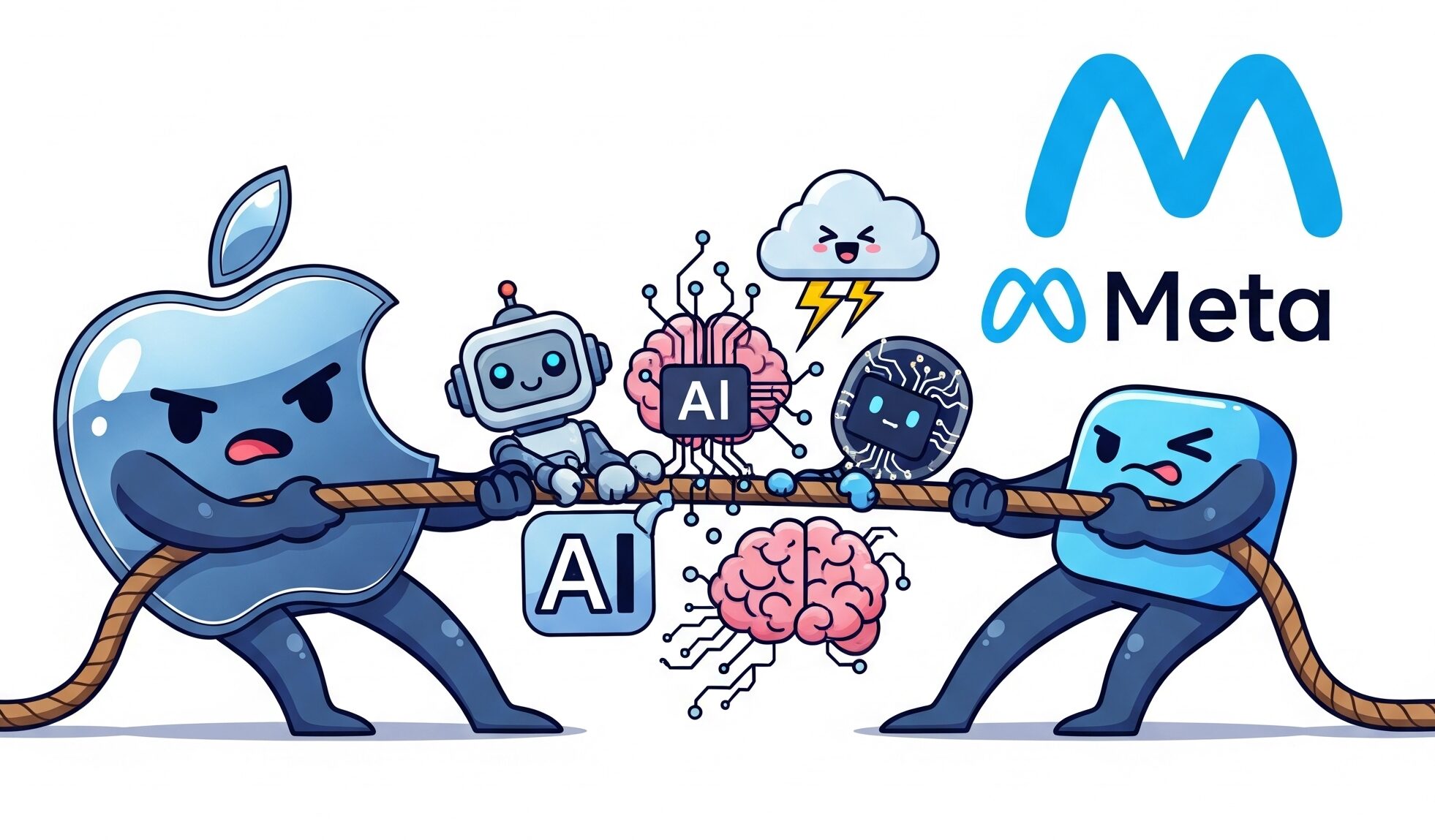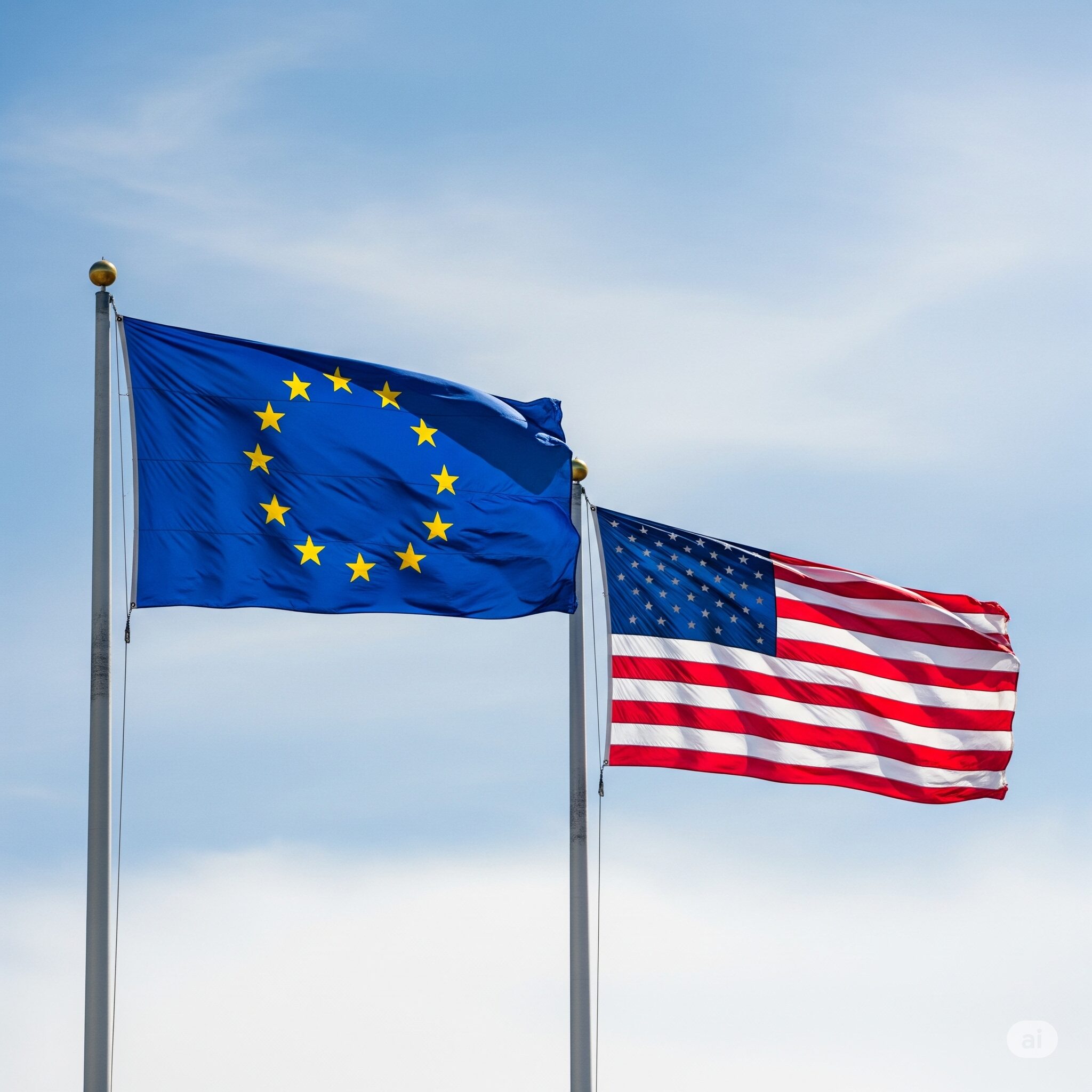Menlo Park, CA – Meta Platforms is escalating its pursuit of artificial intelligence dominance with an aggressive talent acquisition strategy, most recently making headlines for poaching a key AI researcher from Apple. This latest move, initially reported by Bloomberg¹, underscores the intensifying “AI arms race” in Silicon Valley, where top talent is being lured with eye-watering compensation packages.
The individual at the center of the recent spotlight is Ruoming Pang, who led Apple’s foundational models team for its in-house AI efforts. Pang’s departure for Meta, confirmed by sources to Bloomberg and corroborated by CNBC’s Deirdre Bosa², represents a significant gain for Mark Zuckerberg’s newly established “Superintelligence Labs” and a notable setback for Apple’s burgeoning AI initiatives.
According to CNBC’s Deirdre Bosa², while Pang’s reported compensation package of “tens of millions of dollars” might seem substantial, it’s considered on the “lower end” compared to the “100 or 300 million packages” Meta has reportedly offered for other recent recruits. This highlights the sheer financial power Meta is wielding to assemble its AI dream team. Some reports indicate that Meta has made at least 10 high-value offers to staff at OpenAI, with offers including compensation along with company stock, bringing the total pay to over $100 million in the first year alone, and potential packages of up to $300 million over four years⁴. For reference, a senior engineer at Meta might earn around $850,000 per year, and engineers at the E7 level average around $1.54 million annually⁴.
Zuckerberg’s hiring spree extends far beyond Apple. The Meta CEO has been actively recruiting a roster of high-profile names, including Alexander Wang from Scale AI, Nat Friedman (former GitHub CEO), and venture capitalist Daniel Gross³. These hires, along with researchers from OpenAI and Anthropic, are integral to Meta’s ambitious goal of achieving “superintelligence” – AI capable of surpassing human capabilities⁴.
However, the question isn’t whether Meta can outspend the field, as Bosa notes, but rather “whether Meta has a clear sense of what it’s building and to what end.” Critics and investors are beginning to question if this frenetic hiring is part of a coherent AI strategy or a “second system effect” – a pattern where, after an initial success (like Meta’s open-source Llama model), teams overreach, lose focus, and add too much, potentially undermining the original achievement.
Financially, Meta’s AI ambitions come at a considerable cost. The company is spending more on capital expenditures as a percentage of revenue than even hyperscalers. Meta reported record capital expenditures of $14.8 billion in Q4 2024 and $39.2 billion for the full year 2024, with expectations to spend up to $65 billion on capital expenditures in 2025 to expand its AI infrastructure and staffing⁵. Stock-based compensation has reportedly tripled, leading to a significant drop in free cash flow per employee. Wall Street estimates Meta’s spending on AI talent alone to be somewhere between $1 billion and more than $4 billion².
Despite the hefty price tag, many view this talent acquisition as a strategic imperative, and potentially cheaper than a full-fledged acquisition of an established AI startup². Moreover, it serves the dual purpose of strengthening Meta’s own AI capabilities while simultaneously undermining competitors.

Fig. 1: An illustration depicting the tug-of-war for AI talent between Apple and Meta. (Image created by Gemini AI)
For Apple, Pang’s departure is a considerable blow, particularly as the company is widely perceived to be lagging in the generative AI race⁵. Apple’s “bench” of AI talent is not as deep as that of rivals like Google or OpenAI, making each high-profile exit more impactful². Pang, who reportedly came to Apple from Google in 2021, was a crucial figure leading the development of Apple’s on-device foundational models, which underpin features like Apple Intelligence³. His departure raises further questions about Apple’s ability to innovate and compete effectively in the rapidly evolving AI landscape, especially as reports suggest the company is exploring partnerships with third-party AI models like OpenAI or Anthropic for its future Siri iterations⁵.
As Meta continues to consolidate AI expertise, the tech industry watches closely to see if Zuckerberg’s “superintelligence” vision will materialize, and what long-term impact this unprecedented talent war will have on the future of artificial intelligence.
Sources: [1] Bloomberg: “Meta Poaches Top AI Talent From Apple” [2] CNBC (Deirdre Bosa Report): “Meta poaches top Apple AI researcher” [3] Times of India: “Mark Zuckerberg’s Meta hires Apple’s top AI executive Ruoming Pang after patching OpenAI engineers” [4] AInvest: “The High-Stakes Gamble: Meta’s AI Talent Acquisition in a Turbulent Landscape” [5] PCMag: “Meta Poaches Apple’s Top AI Exec: Where Does This Leave Apple Intelligence?”








Leave a Reply